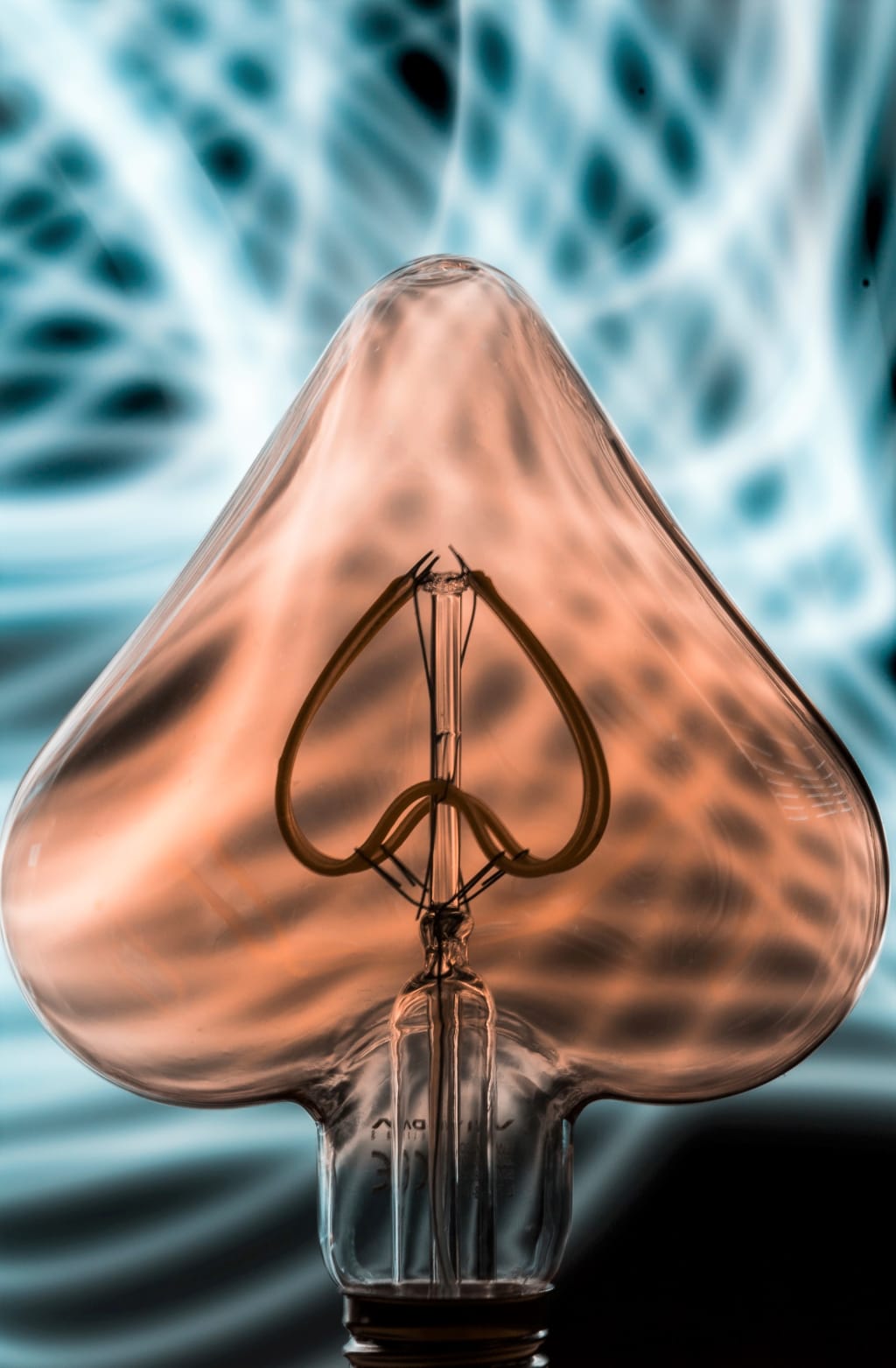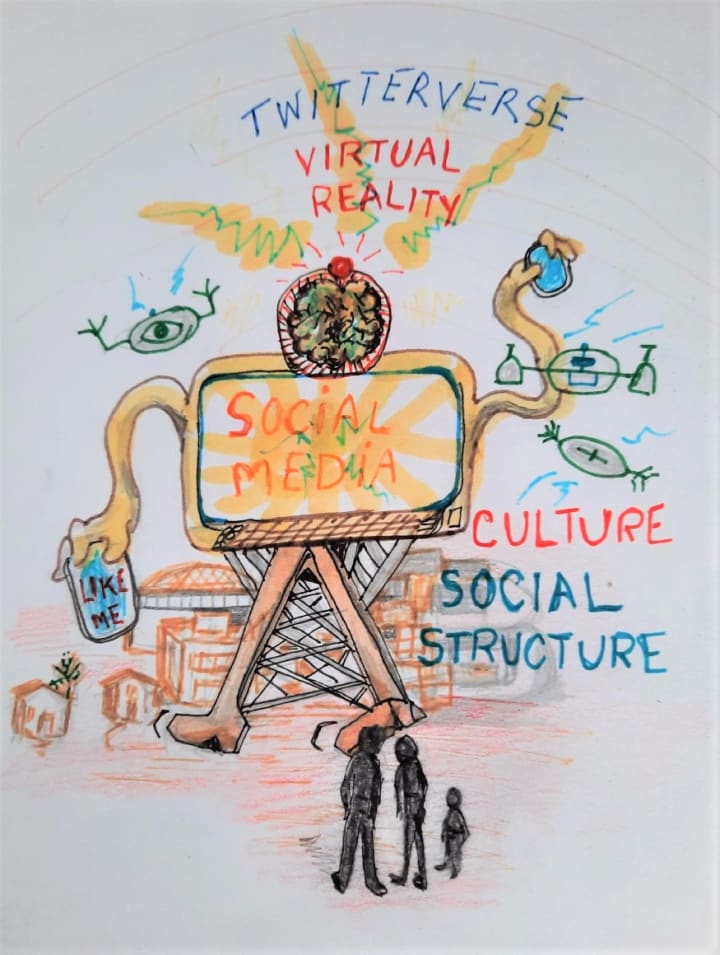Crazy War of the Worlds Explains How Social Media Won the War of Our Minds
“The strain of anti-intellectualism has been a constant thread ... nurtured by the false notion that democracy means that ‘my ignorance is just as good as your knowledge.” ― Isaac Asimov

At first, in the famous science fiction story, The War of the Worlds by H.G. Wells, Earth was suddenly invaded by Martians with no perceived threat to citizens. A large metal cylinder crashed into a town’s sandpit out of which the first Martian appeared and then another.
“A big grayish, rounded bulk, the size, perhaps, of a bear, was rising slowly and painfully out of the cylinder. As it bulged up and caught the light it glistened like wet leather … The whole creature heaved and pulsated convulsively. A lank tentacular appendage gripped the edge of the cylinder; another swayed in the air.”
Then a few people were vaporized as the invaders continued to ravage the countryside assembling their machinery as terrifying Tripods — brutal, three-legged robots, each with a heat ray and a chemical weapon, known as Black Smoke. Social habits and order quickly collapsed putting everyone on the same plane of survival. Chaos followed as People quickly turned on each other acting as if the collapse of social structures gave them excuses to be destructive and violent … plundering stores, attacking each other, and even trains ploughing through crowds.
There was even talk that humans might become “subordinate species” where Martians might domesticate them ending up in “nice roomy cages,” subject to “careful breeding” and “fattening food.”
Serious mass destruction was inevitable until a character discovered that the Martians had died inside their machines killed by an onslaught of earthly pathogens, to which they had no immunity: “slain, after all man’s devices had failed, by the humblest things that God, in his wisdom, has put upon this earth.”
In my opinion, a strange logical case can be made about the conflict between humans and computers and the internet invasion only a couple decades ago. Will our brains and culture ever be the same way again?
The War of the Worlds is considered one of the first books to theorize the existence of a race intelligent enough to challenge human domination. But, also, the story presented a moral theme that questioned how precarious social order is at the center of human endeavor. The absence of social structures powerfully demonstrated how important they were to the human sense of order. Even Nature’s systematic organization couldn’t be taken for granted.
So, is this a crazy or a logical analogy that can be drawn between an invasion by computers and their interactions with humans, as benefits and deficits? Should we have been better instructed to prepare for this invasion?
Does the internet via social media upset the natural cultural order of our society ... the family, our children, our relationships, consumption, entertainment, education, news, government, science and religion? Should we have more compassion for the citizens who suffer from overwhelming fixation? Are infiltrated brains passing on habits to future generations?
There is no doubt that a computer can be such an intelligent machine as it enters every home with multiple interconnected devices with or without regulations.
The internet is not a “creature that heaves and pulsates convulsively” but as one vast identity unto itself. The mighty web machine is simply open technology constructed to amplify people’s voices and ideas. Algorithms are like smoke sometimes to confuse us or like heat rays to virally expose, exult or destroy our identities.
Increasing automation has installed plenty of tools to search, browse, share files, message and talk, but with limited layers of protection and trust. It was so easy to “browse” the shallow streaming media to “like” so many “friends” whose best impulses could be manipulative.
Online communities became tribes; some found connections to push back, to be angry and hostile. Fears, fights and scandals only created bigger crowds. Social censure became diluted; anti-system herd mentality became rampant. Our traditional cultural norms were disrupted in the Twitterverse tweeting contrarian impulses, attacking privacy and sending affirmations like drones to believe anything you wanted.
What seemed to be missing was a shared set of ideals, goals or consequences, where people were expected to bring their best selves to the table. The internet allowed the worst idiots and idioms to go on exhibition. Now scientific research has illustrated many negative consequences such as increased depression, anxiety, low self-esteem about inadequacy about life. How many people do you know that have been victimized by this internet invasion ... physically, emotionally or psychologically?
And the operators just grew bigger and bigger with less barriers, more anonymity and less accountability. Monstrous profits were churned out as business policy with lousy public exploitation and affirmations.
But, in some places in the background, real communities continue to be built with local leadership, tolerance and generosity without preconditions. Definitely, these human values are needed to rebuild social order as long as we don’t relax too much in the shallow variables of this social media machinery and not be turned into “subordinate species” ending up in “nice roomy cages,” subject to “careful breeding” and “fattening food.”
In the grand scheme of things, the virtual world is still in its infancy, which means that the likely long-term effects of all of this online intervention won’t be known for decades. The division between physical, digital and biological spheres will only become more blurred.
But whether its science fiction morals or reality changes, if we have learned anything so far, is that we cannot take our social order for granted. We must learn to work together, protect the values of our traditional cultural norms, plant seeds of trust and repress mistruths and violence.
I feel fortunate that for 50 years I lived without the frenzy and “tentacles” of social media. To this end, my writing has been very critical of social media and its impact on all of our society. At first, my particular concern focused on vulnerable teenage girls who idolized their Selfies as hyped-up adults with still formative adolescent brains.
Then came the realization that millennial mothers may be an extension of teen exploitation. Research studies showed that adults exhibited signs of addiction. Now more evidence involves younger children under the influence.
In my opinion, the internet has changed our thoughts and behavior. I believe it helps to be warned, wary and wiser.
Annemarie Berukoff
PS: Thank you for reading.

7 Ways Social Media Changes Your Brain, According To Science
https://www.bustle.com/p/7-ways-social-media-changes-your-brain-according-to-science-9211397
About the Creator
Annemarie Berukoff
Experience begets Wisdom: teacher / author 4 e-books / activist re education, family, social media, ecology re eco-fiction, cultural values. Big Picture Lessons are best ways to learn re no missing details. HelpfulMindstreamforChanges.com






Comments
There are no comments for this story
Be the first to respond and start the conversation.